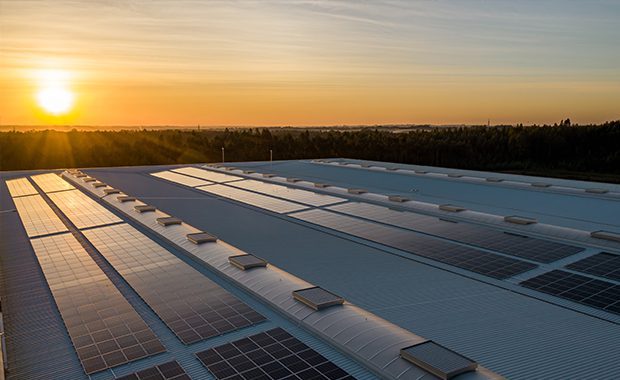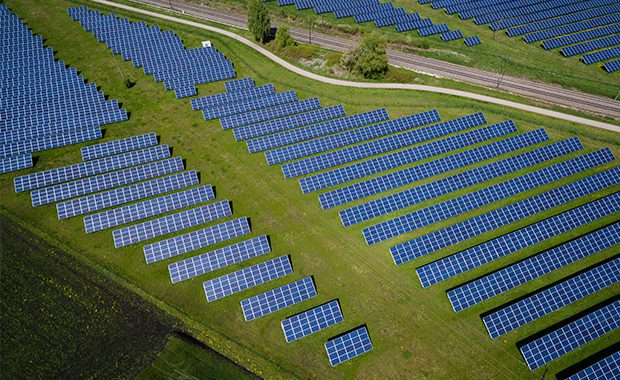GK interns Olivia Warr and Yusaf Hassan take a deep dive into what the new North Sea oil and gas exploration licenses mean for the UK’s net zero targets.
The Prime Minister’s announcement that the Government would grant 100 new North Sea oil and gas licenses was met with dismay by both climate activists and the Opposition, with Shadow Climate Change Secretary, Ed Miliband, arguing that Sunak’s “weak and confused policy… will do nothing for our energy security and drive a coach and horses through our climate commitments”.
The Prime Minister positioned the move as a refusal to bow down to dictators threatening the UK’s energy security. However, the announcement comes amid a broader shift under Sunak’s watch to less enthusiasm for costly green policies following the Conservative Party’s narrow win in the Uxbridge and South Ruislip by-election – largely attributed to the unpopularity of Labour Mayor Sadiq Khan’s ULEZ expansion. Having already spent months criticising Labour over funding links to activist group Just Stop Oil, No.10 sees the cost of meeting certain green commitments as a clear attack line for the upcoming election season.
The Conservative Party’s messaging will have to be precise, however, to not risk losing control of the narrative. Net zero has huge support among the electorate (a recent YouGov poll had support for the 2050 target at over 70%) and among a large portion of backbench Conservative MPs. If the Prime Minister is seen to be reneging on the Government’s emission-cutting commitments, it could become disastrous for his electoral prospects. What he hopes to exploit, though, is the unease about personal lifestyle or financial implications of certain policy initiatives – as evidenced by the strength of opposition to the ULEZ policy expansion. Sunak hopes to portray himself as the common-sense candidate during a cost-of-living crisis; not taking radical action to hurt people’s bank accounts and showing Keir Starmer to be in the pocket of climate radicals who will hurt the economy for their own agenda.
He will be nervously gauging the reaction of his party. Already, the influential Conservative MP, Chris Skidmore, who recently completed an independent review of the Government’s net zero policies, has slammed the plan, stating it is “on the wrong side of the future economy”. Tory MPs at risk from Liberal Democrat challengers at the next General Election may also be concerned about the opinions of their environmentally conscious constituents. Young people, too, are unlikely to be enamoured by Sunak’s pivot as mainland Europe feels the heat of the climate crisis.
The extent to which Labour can attack the Government’s policy is limited, however, after the Party confirmed they would not revoke any of the licenses issued. This has been seen by some as implicit approval of the plan and perhaps an indication that they quietly also see it as a necessary evil to ensure energy security.
But to what extent will the policy announcement achieve its energy security objectives?
The claim made by the Government is that sourcing oil and gas closer to home would reduce emission production by three to four times whilst lowering import costs. Sunak argues that, given the UK is still forecast to be reliant on fossil fuels for one quarter of its energy needs by 2050, the new licenses would not jeopardise the net zero target. Meanwhile, investing in a Carbon Capture Cluster (CCS) through the Acorn Project in Scotland provides the infrastructure to decarbonise North Sea activity, mitigating those emissions that will result from the new drilling sites, while also generating jobs and investment in Northern Scotland.
However, Sunak’s proposal raises some questions. In terms of tackling the cost-of-living crisis and cementing energy security, there’s no guarantee that the newly extracted oil and gas will be cycled directly into the UK market to provide any benefits. The Climate Change Committee in their 2023 report to Parliament suggested there would be minimal impact on domestic prices from this investment. The North Sea Transition Authority (NSTA) also explained that it would take a minimum of five years before sites could become operational – reducing the short-term benefits of the scheme. Furthermore, while the £1 billion dedicated to the CCS is a mitigatory step in reducing emissions, Sunak has refused to be drawn on whether the development of the infrastructure will be sufficient to match the increased emissions, nor has he committed the extraction licences to be conditional on the emissions’ removal.
It remains to be seen whether the current Government – or indeed any future governments – will be able to make significant progress towards the legally-binding net zero target with the lighter touch, less intrusive approach that Sunak is leaning towards in his bid to keep voters onside, or whether the Prime Minister will be forced to take more dramatic, potentially unpopular, action to ensure the goal is met. The UK’s reputation as a global leader in setting climate change goals is strong, following on from a successful COP summit in Glasgow two years ago, but its ability to deliver on them hangs in the balance.



